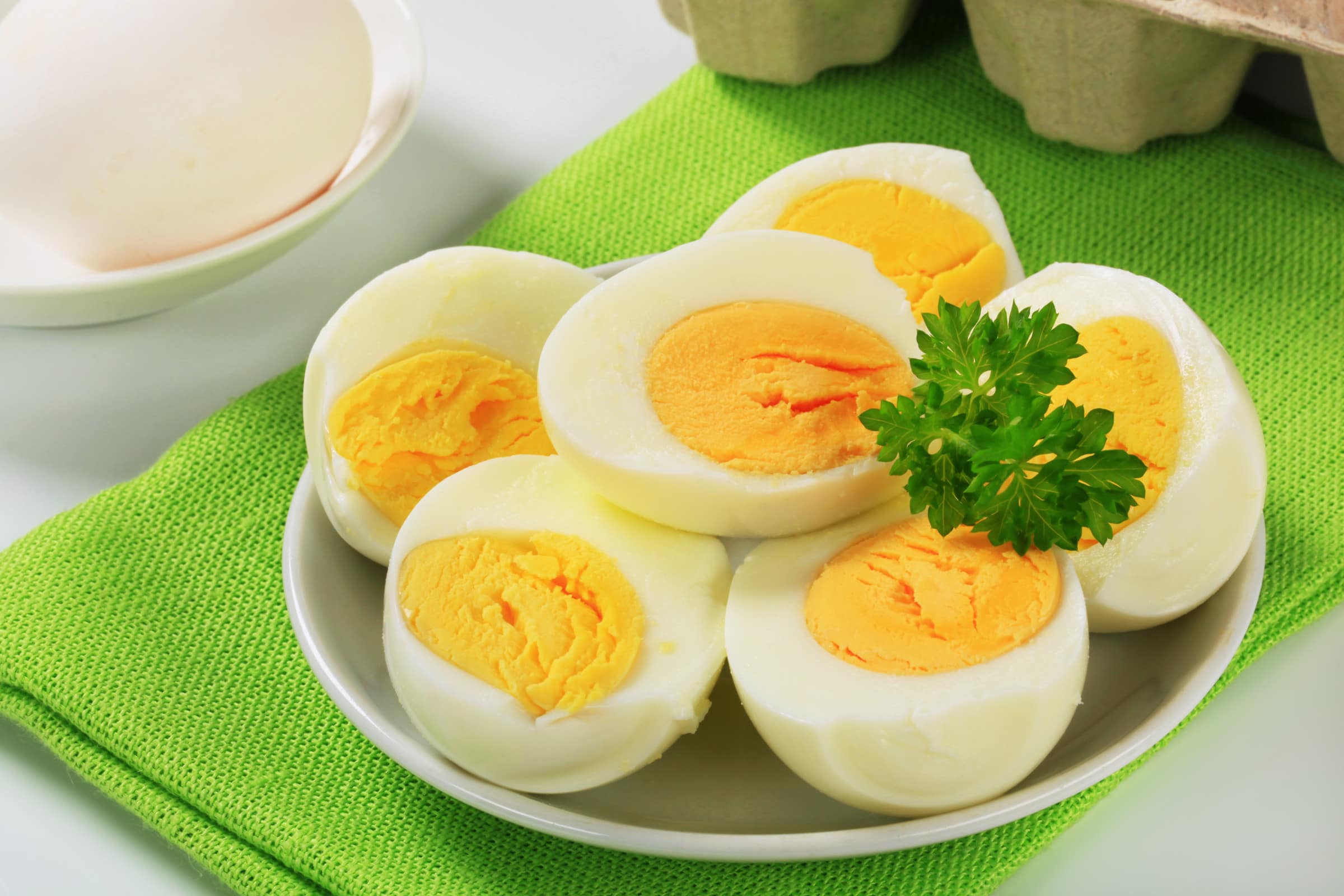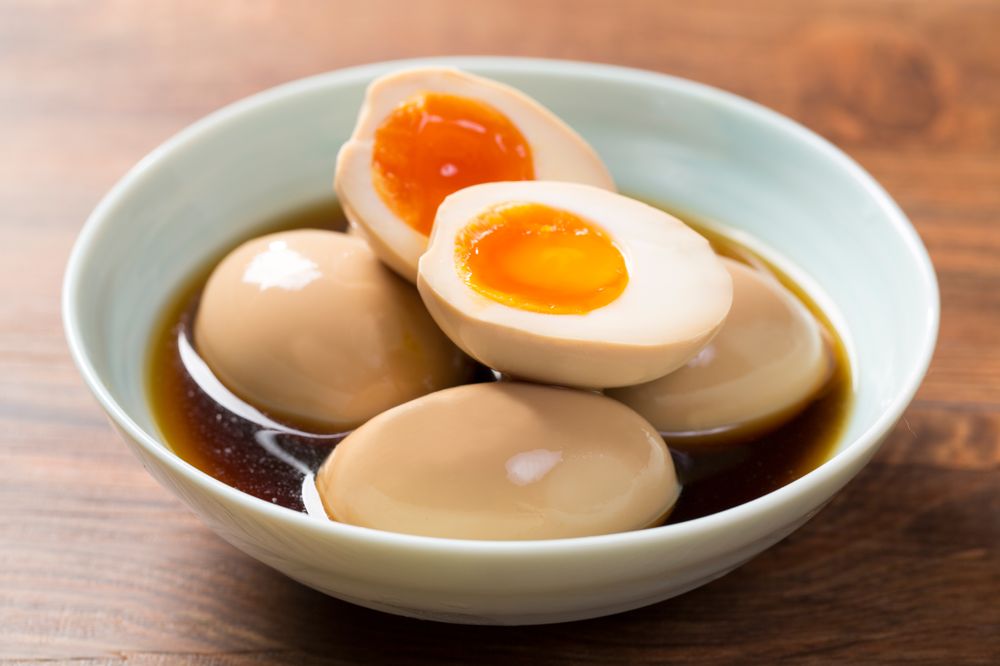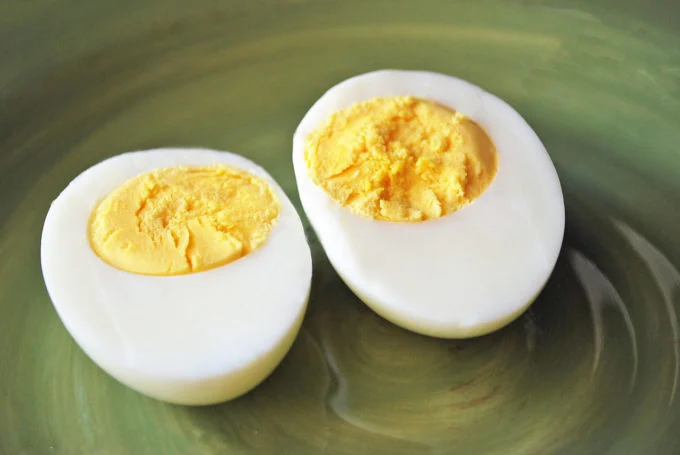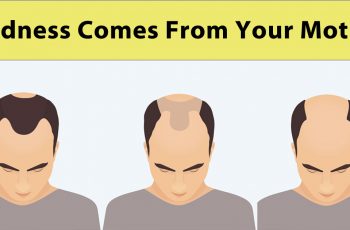
Eggs have been at the center of one of the most divisive debates in the culinary realm. This article does not address the question of whether or not they are truly non-vegetarian, vegetarian, or “eggetarian.”. This protein powerhouse is a stronghold when it comes to health benefits. Eggs can be eaten in a variety of ways, but boiled eggs are among the most convenient. Breakfast, soup, salad, or curry are all ways to enjoy them; they never go out of style. There are numerous benefits of boiled eggs. They are a favorite of children, adults, and the health-conscious alike.
As a food, eggs can be used in so many different ways. Every time you play around with them, you discover something new and wonderful. As a thank you to your taste buds, you’ll reap a slew of health benefits from that flavor. In a previous article, we discussed the protein content and benefits of boiled eggs. That can be found here.
- Take a few eggs
- Fill a circular metal bowl ¾ with water.
- Add the bowl on medium-high heat until the water starts developing bubbles
- Add your eggs
- Boil anywhere from 6-10 minutes, based on how you like your eggs.
- 6 min: the yolk will be liquid and runny
- 7 min: Nearly set and sticky yolk
- 8 min: soft boiled, not hard but not sticky
- 9-10 min: hard-boiled egg, not chalky or dry, but easy to eat.
Because they contain no salt or oil, boiled eggs are the healthiest type of egg to consume. Furthermore, boiling eggs is a breeze.
Boiled or Fried?
One of the best sources of nutrition is a hard-boiled egg. It’s a much better option than fried eggs in my opinion. Cooking eggs causes the protein strands to split because some linkages are broken. As a result, egg proteins are more easily digested and absorbed.
The nutritional composition of eggs is unaffected by how they are prepared; however, the ingredients you use during preparation can have an impact. With no additional ingredients, eggs are nearly identical in nutritional value when boiled, poached, or scrambled. When preparing eggs, it’s important to keep in mind that adding other ingredients or frying them in fat may alter the nutritional value of the finished dish.
Nutritional Value of Boiled Eggs
One egg contains:
- Calories: 72
- Protein: 6 grams
- Carbs: 0.6 grams
- Fat: 5 grams
- Saturated Fat: 1.6 grams
- Vitamin A: 10% of RDA (Recommended Dietary Allowance)
- Riboflavin: 16% of RDA
- Vitamin B12: 21% of RDA
- Folate: 9% of RDA
- Iron: 5% of RDA
- Selenium: 28% of RDA
However, when an egg is boiled, it undergoes a dramatic transformation. One fully cooked, a hard-boiled egg has the following nutritional value:
- Calories: 77
- Carbs: 0.6 grams
- Total fat: 5.3 grams
- Cholesterol: 212 mg
- Protein: 6.3 grams
- Vitamin A: 6% of Recommended Dietary Allowance (RDA)
- Vitamin B2: 15% of RDA
- Vitamin B12: 9% of RDA
- Vitamin B5: 7% of RDA
- Phosphorus: 86 mg or 9% of RDA
- Selenium: 15.4 mcg, 22% of RDA
Similarly, the values for various kinds of eggs vary. The values change even if you soft boil or half-boil an egg. The hard-boiled egg is widely regarded as the healthiest and most complete egg preparation method.
Benefits of Boiled Eggs

1. High-Quality Protein
Boiled eggs are a good source of protein. Proteins play a critical role in muscle and tissue repair and maintenance because they are the building blocks of our bodies. The protein content of a boiled egg is approximately 6.3 grams. Boiled egg protein is beneficial because it contains all nine essential amino acids. Muscle gain, recovery, and maintenance are all aided by these acids.
Other meals can, of course, have a higher protein content. Eggs, on the other hand, provide an unparalleled amount of protein. Additional benefits include weight loss and muscle gain as well as blood pressure control and bone health from the protein in boiled eggs.
2. Contains Good Cholesterol
Cholesterol levels in boiled eggs can reach dangerously high levels. It’s more than twice as much as the daily recommended allowance (300 mg) as just one egg! There is no correlation between a person’s intake of dietary cholesterol and an increase in their blood cholesterol levels. Eating boiled eggs raises levels of HDL (the “good” cholesterol) in the blood. Although they may reduce the risk of heart disease, there is insufficient evidence to support this.
According to studies, the liver is a major source of cholesterol production. When you eat eggs, your liver produces less cholesterol. As a result, everything is in its proper place.
‘Bad’ cholesterol, also referred to as low-density lipoprotein (LDL), is the type of cholesterol that puts your heart at risk. When it comes to boosting LDL cholesterol levels, eggs aren’t to blame. eggs also consistently raise HDL cholesterol levels (good cholesterol). HDL levels are linked to a lower risk of heart disease, stroke, and other medical conditions, according to numerous studies.
3. Provides Choline
Most people have never heard of choline, despite the fact that it is an essential nutrient. The cytoplasmic membrane is dependent on it. Chemical signals in the brain are also created by it.
Even though a choline deficiency can be life-threatening, it is fortunately not common. Whole eggs contain a lot of choline. Choline is found in abundance in boiled eggs, with each serving providing more than 100 mg. Aside from that, it’s an essential micronutrient that the majority of people are deficient in. Choline is found in abundance in boiled eggs.
4. Excellent Source Of Vitamin D
Only a few foods, such as egg yolks, naturally contain vitamin D. Eighty-two percent of your daily requirement for vitamin D is found in just two boiled eggs, making them an important source of this vitamin.
Calcium and phosphorus are readily absorbed by the body when vitamin D is present. As a result, vitamin D is essential for maintaining healthy bones and teeth. Additionally, it aids in the maintenance of healthy bones and teeth, as well as strong muscles and a strong immune system.
5. Weight Management
To help you lose weight, boiled eggs are one of the best meal options. They have a low caloric count and a high protein content. High levels of satiety contribute to increased feelings of fullness, less hunger, and less desire to eat between meals. So you won’t be tempted to grab a snack in the middle of the day.
Consumption of boiled eggs has been shown to have the following health benefits:
- Increase the number of hormones that make you feel full
- Keep your energy maintained
- Boost metabolism
The protein in boiled eggs is of the highest quality. Because of this, they are a great addition to diets that help people lose weight. Boiling eggs is also a good way to keep blood sugar levels stable. Since it corrects a person’s dietary intake, it helps them maintain their fitness level.
6. Omega-3
While fish is a well-known source of omega-3 fatty acids, boiled eggs are an excellent substitute for those who cannot eat seafood because they contain a higher concentration of these beneficial fats.
Polyunsaturated fatty acids, such as omega-3 fatty acids, are found in a variety of foods. Fats like omega-3 and omega-6 are essential for cell membrane function, ranging from heart health to eye protection. Omega-3s can only be produced by your body to a limited extent, so it’s essential to get them from food. Omega-3 fatty acids can be found in boiled eggs, which are an excellent and palatable source. Each serving contains 180mg of Omega-3 (2 eggs).
7. Eye Health
Eggs are a good source of vitamin A, vitamin E, and selenium. In order to maintain eye health and restore retinal function, these compounds are essential antioxidants. Even at a young age, selenium can help prevent the deterioration of one’s eyesight.
Boiled eggs are a good source of lutein and zeaxanthin, two powerful antioxidants. They accumulate in the retina of the eye and are extremely potent antioxidants. Both of these substances are anti-inflammatory. Cataracts can be avoided with the use of these eyeglasses.
Studies have shown that the antioxidants found in boiled eggs are better absorbed by the body than those found in other plant foods.
8. Healthy Ageing
Eggs are an easy way for the elderly to get more nutrients into their diets. As a result, this reduces the risk of a variety of ailments and deficits. Leucine, an amino acid essential for long-term muscular support, and choline, a less well-known vitamin essential for brain function, are also found in these supplements.
However, there are times when questions arise. For example, which is better when eating boiled eggs: What do you call it when it’s only half cooked? Alternatively, how about a complete re-boil? In reality, both are safe and pose no health risks.
However, if you’re on a strict health-based diet, one is better than the other.
Which is Better: Half or Full?
When it comes to cooking eggs, everyone has a favorite method. Depending on how you prepare them, you have a variety of options. This happens because when eggs are boiled hard, the egg white and yolk become solidified. This recipe for soft-boiled eggs calls for a partially cooked yolk as well as a raw one.
Hard-Boiled Eggs
For example, hard-boiled eggs contain high levels of vitamin D as well as zinc and iron as well as calcium and vitamin B12. The high protein content also aids in muscle and bone growth. Antioxidant and anti-inflammatory properties of lutein and zeaxanthin, which are found in these eggs, also contribute to eye health.
Soft Boiled Eggs

Delicious and filling, soft-cooked eggs are a common breakfast item. However, they may contain contaminants due to the fact that they are only semi-cooked. Because of this, they are not recommended for those with compromised immune systems. However, the proteins in eggs are preserved by this method of cooking. Even in soft-boiled eggs, the whites are always cooked first.
To summarize, eating soft-boiled eggs is riskier and less healthy than eating hard-boiled ones. When using the soft cooking method, it’s possible that using raw egg yolk will increase your risk of contracting salmonella. Studies, on the other hand, show that the risk is low.
Organically produced eggs are better for your health than conventionally produced eggs when it comes to boiled eggs. Conventional eggs, on the other hand, are perfectly healthy. However, the buyer’s conscience may be affected by some practices involved in raising chicks for commercial sale. The differences between organic and conventional eggs, on the other hand, are substantial!
Conventional v/s Organic
Different types of eggs have different nutritional values. The way the chickens are raised and fed has a significant impact on this. In order of importance:
- This type of egg is typically found in a grocery store or at a neighborhood food stand. Grains enriched with vitamins and minerals are fed to the chickens that lay these eggs.
- When no GM feed is given to the chickens, they produce organic eggs. Aside from that, they eat organically as well. To produce these eggs, the chickens are allowed to forage for food on their own, while also consuming some commercial feed.
- Omega-3-enriched eggs can be produced by feeding chickens flax seeds as a supplement to their diet.
The problem is that commercial egg-laying chickens are often kept in cages. They can only move in very specific ways. They’re given hormones to speed up the process of conceiving. However, the overall quality of the egg is unaffected by this.
Organic eggs are more expensive than their conventional counterparts. The high cost of production is reflected in the product’s price.
Certified organic eggs may be the healthiest option available to consumers. Because the chickens that hatched the eggs had unrestricted access to a more natural diet, their eggs are more nutritious. Omega-3-enriched eggs are a good substitute for certified organic eggs if they aren’t available in your area. Consider free-range or cage-free if you can’t find omega-3 eggs or pastured eggs. It’s still possible to eat healthy on a regular basis, even if you can’t have organic eggs.
Recipes
It’s more of a chore than a pleasure to eat boiled eggs every day. every day. This does not mean, however, that it is a good idea to avoid it entirely. To make boiled eggs more appetizing, consider incorporating them into a variety of other dishes.
1. Eggs with Paprika Aioli
Ingredients (8 Servings):
- Large eggs: 4 (unrefrigerated)
- Jarred pepperoncini: 2 (brined)
- Parsley: 4 sprigs (1 sprig finely chopped)
- Mayonnaise: ¼ cup
- Smoked paprika: ½ tsp
- Kosher salt
Steps:
- Add a little water to a small saucepan. Boil the water on high heat.
- Put four eggs into the water with a spoon. The timer should be set to 8 minutes.
- Fill up a large bowl with water and set it aside.
- Pepperoncini peppers should be drained. Remove the plant’s stems and discard them.
- Add it to a small bowl and pulverize it to a fine powder.
- You can do the same thing with your parsley. Afterward, add it to the bowl of pepperoncini.
- Combine 14 cups of mayonnaise and 12 teaspoons of paprika in a separate small dish.
- Spider or slotted spoon to remove eggs from boiling water and put them in an ice bath after a timer goes off.
- Allow for a five-minute cooling down period after the cooling down period has ended.
- The eggs should be peeled and cut in half. Salt the egg yolks. Put the eggs on a serving tray.
- Add paprika mayo and pepperoncini salsa to the eggs before serving.
- Salt to taste and savor the experience.
2. Eggs in Soy

Ingredients (6 Servings):
- Large eggs: 6
- Garlic cloves: 5, peeled
- Red pepper flakes: 1 tsp, crushed
- Soy sauce: ¾ cup
- Mirin (sweet Japanese rice wine): 3 tbsp
- Rice vinegar: 2 tbsp, unseasoned
- Sesame seeds: 1 bunch, toasted
Steps:
- Using a slotted spoon, carefully drop the eggs into the boiling water.
- Once the water has come to a gentle boil, cook the pasta for 7 minutes. Scoop the mixture into a bowl of cold water. Allow to cool for 2 minutes (eggs may still be a little warm). Peel the eggs after they’ve been in the cold water.
- Pour in the garlic, chiles, soy sauce, mirin and vinegar into a medium saucepan and bring it to a boil.
- After 5 minutes, turn the heat down to medium-low and continue cooking. Remove the pan from the heat and stir in the eggs at this point. Allow an hour for cooling.
- Sprinkle sesame seeds over the top if desired after draining the eggs and slicing them in half.
- Enjoy with a dash of salt.
Things to Remember
It’s possible that eggs’ health benefits are limitless, but the recommended daily intake isn’t, either. For decades, people have been told to cut back on their egg consumption, or at the very least, the yolks of eggs.
Cholesterol in a single medium-sized egg (186 mg) is 62% of the daily recommended intake (RDI). The white is primarily made up of protein and cholesterol-free fat. Because of this, a weekly limit of 2–6 yolks is generally recommended.
Studies have shown that people’s reactions to eating whole eggs are influenced by their own genetics. Eggs, for example, had no effect on participants’ total or bad LDL cholesterol. In 30 percent of people, however, these indicators rise slightly. Because of this, the recommended daily intake is 3-4 boiled eggs. However, overdoing it here or there shouldn’t be a problem.
Summary
In general, eggs are a highly nutrient-dense food. Eggs, on the other hand, do not significantly raise cholesterol levels in most people. Even if they do, they tend to raise HDL (the good cholesterol) while decreasing LDL (the bad cholesterol) in size and shape, which lowers the risk of disease.
It’s safe to eat up to three whole eggs a day, even if you’re not allergic. Aside from their high nutritional content and numerous health benefits, quality eggs may be one of the healthiest foods on the planet.



